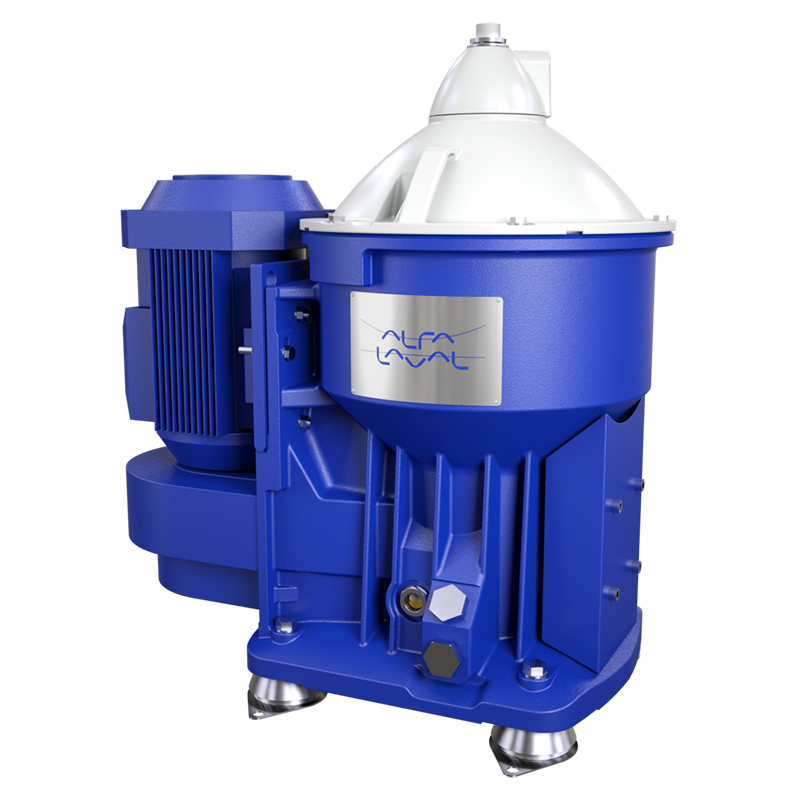
MANAGING BIOFUELS
The use of biofuels instead conventional marine fuels is growing quickly, but there are challenges when using them onboard ships
As a European Maritime Safety Agency (EMSA) report noted in 2022, the possibility to replace conventional petroleum-refined hydrocarbons with biofuels without substantial modifications (and in some cases, without any modification) to engines, fuel tanks, pumps or supply systems, may offer an immediate, attractive and cost-effective solution, for the existing fleet.
May 20, 2023
That is reflected by the increasing number of ships taking on biofuel. However, as a comprehensive 2017 report by the University of Copenhagen for the International Energy Agency (IEA) noted, biofuel does present management challenges.
These include a tendency to oxidize and degrade during long-term storage of 6 to 10 months. The report noted: “As biofuels are derived from natural sources, they tend to degrade in water faster than conventional fossil-based fuels. This is positive in case of an oil spill, but would cause problems for long-term storage of the fuel.”
Fuel lubricity and conductivity are also areas of concern. Fuel lubricity is important in a diesel engine as the moving parts are often lubricated by the fuel. On the other hand, as the report also noted, this is also the case for ULSGO, which requires different additional lubricity additives. Even though biodiesel acts as a good lubricant, it loses its lubricity over time due to oxidation of unsaturated molecules present in the fuel and increased water from moisture absorption.
The report also points out that electrical conductivity is important for fuel as static charges can build up as the fuel is pumped through pipelines and so requiring the use of anti-static additives to prevent static discharge during transfer, transport, and pumping.
More recently, in February this year, classification society DNV produced a paper entitled Use of biofuels in shipping. It notes: “The use of biofuels or biofuel blends is one of many ways to comply with the IMO’s strategy on the reduction of GHG emissions from ships, and DNV has seen an increasing interest in these new fuels.”
DNV notes some possible consequences from the use of biofuels:
Microbial growth: Bacteria and mould may grow, causing filters and piping to clog.
Oxygen degradation: Biodiesel could form deposits in piping and engine, compromising operational performance.
Low temperature: The higher cloud point may lead to the clogging of filters at lower temperatures.
Corrosion: Some types of hoses and gaskets could degrade, leading to loss of integrity, and interact with some metallic material to form deposits.
Possible degeneration of rubber sealings, gaskets and hoses: Important to verify that these components can be used together with biofuel.
Conversion: When switching from diesel to biofuel, fuel filters can become clogged.
Meanwhile, the Indian Register of Shipping has issued a Technical Circular (No: 058/2022) on the Use of Biofuel and its Blend as fuel on board Indian Flagged Ships. This follows an Indian government decision to allow biofuels on vessels flagged in the country.
Among several requirements listed, a Vessel Specific Risk Analysis is to be carried out for use of bio-fuel blends. It also cautions that the significant presence of fatty acid methyl ester (FAME) requires additional fuel management focus on addressing the propensity of FAME to retain water, accelerate oxidation, microbial growth, and filtration problems. It advises long term storage should be avoided during the trial phase. Settling and service tanks should be regularly drained of water. Tank and fuel system materials (any tank coatings used that may not be compatible to substances such as FAME) should be assessed for suitability of storage and handling of this fuel. It is advisable to ensure the tanks to be loaded with the Bio-diesel are emptied, and cleaned of any excess sludge.
IRS says that a shipboard operational procedure is to be prepared and can part of the safety management system (SMS) manual and is to include procedure for procurement, availability test result, storage of biofuel blend, frequency of cleaning of fuel filters, inspection of storage tanks, monitoring of transfer lines and associated piping & fittings and any other requirements specified by the manufacturers of engines/equipment. The procedure is to also include logging/monitoring of all relevant engine parameters, maintenance, and checks in consultation with equipment manufacturer.
The circular also instructs that no Biofuel blend is to be used for emergency equipment including lifeboat engines, emergency generator engines or emergency fire pump motors.
In another development, equipment manufacturer Alfa Laval is now producing biofuel-ready separators. The company notes that biofuels such as HVO (hydrotreated vegetable oil) and FAME can be used by diesel engines without major engine modifications. “They can be a carbon-neutral alternative if produced from the right biomass, Alfa Laval notes, “but they must still be cleaned effectively to prevent performance issues and expensive engine wear.”
Claiming “a marine industry first”, Alfa Laval says its high-speed separators are now compatible with HVO (EN15940) and with FAME (EN14214 or ASTM D6751) blends comprising residual fuel and/or distillate.
Get in touch
Contact one of the World Bunkering team.
Constructive Media
Constructive Media
50 George Street,
Pontypool
NP4 6BY
Tel: 01495 740050
Email: ibia@constructivemedia.co.uk
On behalf of :
IBIA Ltd
107 Cheapside
London
EC2V 6DN
United Kingdom
Tel: +44 (0) 20 3397 3850
Fax: +44 (0) 20 3397 3865
Email: ibia@ibia.net
Website: www.ibia.net
Emails
Publisher & Designer: Constructive Media - ibia@constructivemedia.co.uk
Editor: David Hughes - anderimar.news@googlemail.com
Deputy Editor: Unni Einemo - unni@ibia.net
Project Manager: Alex Corboude - alex@worldbunkering.net
Terms & Conditions | Copyright © 2023 World Bunkering
